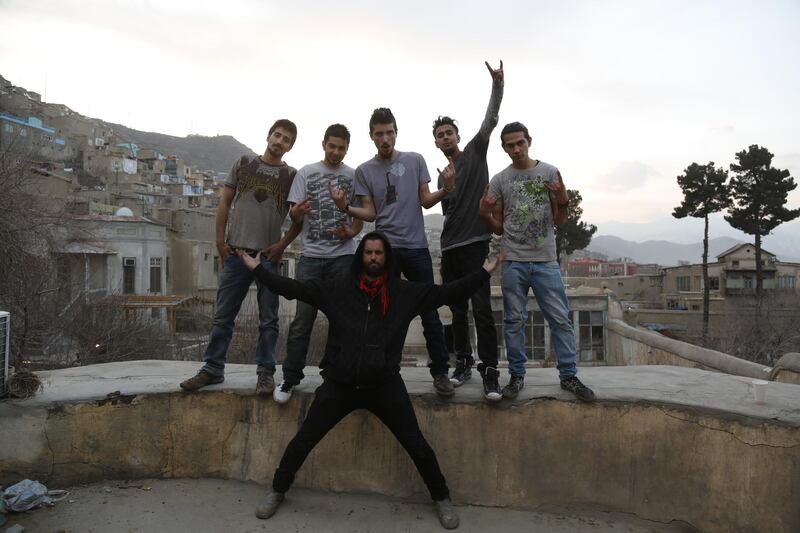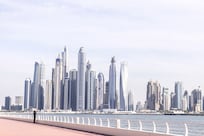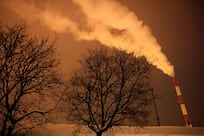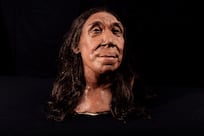In Rockabul, Travis Beard's gripping new film about Afghanistan's first heavy metal band, the Australian documentary-maker interviews a Taliban judge named Hagmal via a translator. "Rock music – have you heard anything about it?" asks Beard.
“Rock?” replies Hagmal. “Look, if you listen to this ridiculous music, flames will come out of your ears on Judgement Day. It is permitted to kill people who choose this path.”
What the Taliban judge doesn't know is that Beard is mentoring District Unknown, four young Afghans who fell for heavy metal and formed a band in a war zone. A musician himself, Beard first met brothers Pedram and Qasem and cousins Lemar and Qais in 2009. Taken with their enthusiasm, he soon allowed them to rehearse secretly at his home in Kabul despite the obvious risks.
"Yeah, the threat from the more dangerous elements of Afghan society was always there," says Beard from Melbourne. "You can live in fear or you can live your life, but if we'd spent our time trying to pre-guess any suicide bomb or attack on us personally we'd never have done anything."
Beard first went to Afghanistan in November 2001. He was working as a photojournalist, reporting on the Afghan refugee crisis after the so-called War on Terror. He'd planned to go for three months, but ended up staying for seven years, returning intermittently. "If you take the conflict out of the equation Afghanistan is an enchanting place," he says. "The topography is stunning and the people are very hospitable. The only real negative is the food, but after 40 years of war their cuisine has been decimated by a lack of supplies."
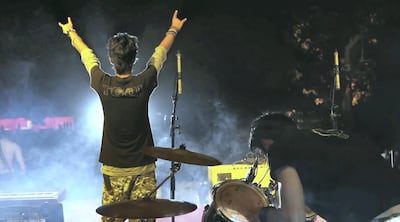
Though on-location filming for RocKabul was completed around 2014 and 2015, there's a very good reason why the documentary's initial film festival screenings are only happening now. All previous members of District Unknown left Afghanistan in the interim. Beard and his collaborators were fearful for the band's safety should the film be shown publicly. Not for nothing is the documentary's tagline: "Would you put your life on the line for your music?"
Early in the film, we see footage of the band's first rehearsal. "Is that the call to prayer?" asks drummer Pedram, sticks poised for action. He is clearly wary of making any noise until the sacred moment has passed. At this stage, the band's musicianship is extremely rudimentary. They've seen footage of their heroes Metallica and Slayer on YouTube, but as an indigenous heavy metal band without precedent or peer group, they barely know which way up to hold their instruments. "They didn't know chords," Beard says. "They didn't know scales. Lemar became the band's first singer and shredder lead guitarist, but initially he only played with one finger. That was quite endearing at first but after a couple of months we had to say: 'Actually guys … sorry, but you suck.'
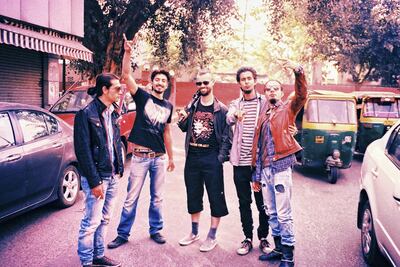
“I’d been lucky enough to have guitar lessons in Australia as a kid, and I passed on what I knew. That was all they really needed to get a kick-start.”
The band's other guitarist, Qais, uses his computer-class fees to buy a guitar, but he has to hide it because his father hates music. Battling power cuts, the band moves to a new, mice-infested rehearsal space after a concerned knock on Beard's door. District Unknown slowly acquire musical ability and begin writing their own songs. When Beard secures them a gig for the expatriate community at a hidden location in Kabul's District 3 in 2010, however, Qais and Qasem are so shy they spend much of their performance facing the wall.
Meanwhile, Beard himself is playing in a band with United States soldiers, and through his connections with their military base and various charities, he is able to find funds to help District Unknown progress. He travels to Turkey to buy them better instruments, but back in Afghanistan bass player Quasem is shaken when he sees a suicide attack at the Indian embassy.
It’s Lemar, though, who is first to cut his losses after then US President Barack Obama’s first significant troop withdrawal in 2011. Leaving the band and Kabul to get married in Turkey, District Unknown’s frontman tells his bandmates: “This is not my country any more. It’s a battlefield for drugs, for mafia, and for money.”
Undaunted, the band recruits a new singer, Yousef, and with significant US government funding, Beard and others organise South Central, Afghanistan's first music festival for 35 years. Naturally, District Unknown are on the bill. "Security was a big issue", recalls Beard. "A lot of money was handed over to the local police to secure the area. Also, we couldn't promote until the last minute, otherwise the Taliban might have had time to plan an attack."
Other significant staging posts for District Unknown include a performance in Mazar-e-Sharif, northern Afghanistan, after which new singer Yousef is arrested and only makes it back to Kabul two months later. The band also goes on to play a three-day South Asian music festival in New Delhi in front of an audience of 10,000 people. That trip also involved an emotional reunion performance with Lemar, whom Beard flew out to India for the occasion. "Delhi was the band's first gig outside of Afghanistan, and it gave them street cred and legitimacy," says the filmmaker.
"They'd already become pseudo rock stars, but only in their own country. Now it was like: 'Let's tour the world!'"
__________________
Read more
It is finally here: Spotify has launched in the Middle East and North Africa
Haifa Beseisso's striking new video asks us to rethink stereotypes about the Middle East
Pharrell Williams criticised for singing 'Happy' to Israeli soldiers as part of army fundraiser
__________________
Although District Unknown subsequently went from strength to strength, and further South Central festivals were staged in the Afghan capital in 2012 and 2013, the band's dream of touring the world was not to be. Beard cites US and other allied forces' full troop withdrawal from Afghanistan in 2014 as the beginning of the end. Funding for cultural pursuits in Afghanistan dried-up and security problems increased dramatically. A brain drain led to a cultural wasteland as middle-class Afghans fled the country.
Bass player Qasem was still in Kabul after his bandmates had won scholarships to study in the US and the United Kingdom, but the allied withdrawal – and one particularly shocking event that’s documented in the film – prompted him to leave, too. After three attempts, Qasem finally secured a visa to go and study in the US.
Beard is still in touch with all of the former band members. He spent the last couple of years finishing the film, and trying to secure celebrity rock star endorsement.
In 2015, he accompanied singer Yousef to Metal Hammer magazine's Golden God Awards in London, where District Unknown's second frontman was to accept a gong on behalf of the band for Best Global Metal act. While there, they met Faith No More bass player Bill Gould, who has since become an executive producer of the film and an active ambassador for the Rockabul project.
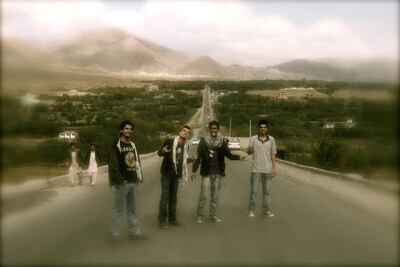
Beard hopes to see Rockabul – which was first screened at the International Film Festival Rotterdam earlier this year – go on general release early in 2019, and says that he would love to show it in the UAE. Asked about the documentary's remit, Beard says: "We wanted to show that young people in Afghanistan are just the same as other young people.
“They’re not a bunch of terrorists or extremists – they just want to enjoy their music.”
The Australian filmmaker is also making a second documentary about Afghanistan. "This time I'm zooming out to look at the whole country," says Beard. "I guess the key question I'm asking is have the billions of dollars spent there over the past 15-18 years been worth it?"
